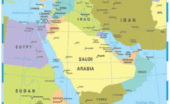Molly Minturn - My family is heartbroken to share that my father died in surgery on Monday, Feb. 10. It…
Wednesday Night #1804
Written by Diana Thebaud Nicholson // September 28, 2016 // Wednesday Nights // Comments Off on Wednesday Night #1804
We ae delighted to welcome a special guest from Pearson College UWC, Dan Hurley, Vice-President of Advancement & External Relations. As Désirée stated in her announcement of Dan’s appointment, Dan is the College’s most visible front-line raiser of “funds, friends and profile.” He is eminently qualified. Previous posts include Associate Vice-President (External Affairs) and senior advisor to the President of the University of Winnipeg, the Honourable Lloyd Axworthy. Prior to that, Dan spent more than a decade in Ottawa working as a political advisor to several Members of Parliament and cabinet ministers, and served as chief of staff to then Environment Minister, Stéphane Dion. Dan is also a former broadcast journalist with CBC Radio. He is passionate about education and its power to transform lives, to empower and inspire all of us to achieve our dreams. Oh, yes, and he is also a former sea cadet!
With respect to the topic of the day/week, each of us no doubt has a slightly different view of what happened at the presidential debate on Monday. We then turn to the reports that bolster that opinion. Most of the ‘establishment’ (elitist?) media pronounced Hillary the clear winner, while the usual suspects hailed Donald Trump (Commentators Give Hillary Clinton Edge in Debate) Among the former, The Atlantic Live Blog “Clinton keeps her cool” which includes the views of a number of bloggers. Quartz is unreservedly enthusiastic “I think Donald just criticized me for preparing for this debate”: The moment Hillary Clinton beat Trump.
We have become increasingly fond of The Atlantic for its coverage of the campaign along with a number of other issues and it has won our hearts yet again with the scholarly analysis of The West Wing’s Debate Episode .
Here’s The Atlantic’s “morning after” wrap:
After the Battle: Last night, a record number of Americans—by some accounts, more than 100 million—tuned in for the first presidential debate between Hillary Clinton and Donald Trump. Who won? By all accounts, Trump performed poorly, and Clinton knows it—but her supporters, while proud and relieved, are still nervous. Perhaps most of all, the debate showcased the differences between the two candidates’ temperaments, partly thanks to moderator Lester Holt’s choice to step back and let the candidates interact. But next time, it won’t just be up to the moderators: On October 9, for the first time, voters will be able to submit—and help select—the questions.
The General Welfare: One of the debate’s most memorable moments came when Clinton confronted Trump with a 2006 quote in which he’d hoped to make money from a housing crisis—and he didn’t deny it. “That’s called business, by the way,” the Republican said. To many, the comment suggested a shocking lack of concern for ordinary people, especially given that business leaders once saw themselves as contributing to the public good. But it’s not surprising coming from Trump, who’s been notably silent on the subject of community—something his party’s conservative voting base has traditionally valued. If all that’s hard to stomach, here’s a look at how bankers live with the moral quandaries of the finance industry, and here’s a movie with a heartwarming message about community’s power.
We also appreciated the Live Fact Checks from the New York Times and NPR, a boon to political junkies and wonks, but does the wider audience care? We know that the Trump base is inured to his missteps and ‘misspeaks’, however, we are mystified by the support he has from veterans.
The news from Syria goes from bad to worse. Following the bombing of the aid convoy last Monday and subsequent horrific bombardment of Aleppo, the international community appears to have given up on any possibility of a political solution to the war. Leaving aside his anti-Israel references, Al Jazeera’s Sharif Nashashibi provides a good analysis of the hopeless situation in Syria in light of the Assad regime’s successful policy of denial as a war strategy.
On a happy note: the welcome news that Iranian-Canadian Professor Homa Hoodfar has been freed. The retired sociology and anthropology professor from Concordia was charged with “dabbling in feminism” and confined in Tehran’s notorious Evin prison. Prime Minister Trudeau credits Oman, Italy and Switzerland for their role in facilitating her release as Canada has no diplomatic ties with Iran. Foreign Affairs Minister Stéphane Dion also met with the Iranian foreign minister on the margins of the United Nations’ general assembly last week. Mr.Dion commented that if he could reopen official diplomatic ties with Iran (broken off by the Harper government in 2012), he would do so “tomorrow,” but it’s not that easy. ”
Next secretary-general: no charisma required Gwynne Dyer’s wry look at the role and selection process for the next secretary-general of the United Nations ” By the end of this year’s session of the General Assembly in early October, we will know who it is. Which raises two questions: how do they make the choice, and why should anybody care? … [the S-G is] in some senses, the highest official on the planet, but the selection process is hardly democratic. In fact, it has traditionally been a process as shrouded in secrecy as a papal conclave.”
Wearing her Chatham House hat, Cleo Paskal is attending this week’s by-invitation-only Global Think Tank Summit III in Montreal. Guided by panels of thought leaders (why does that sound slightly Orwellian?), the Summit will examine a range of strategies and best practices for transforming public policy and institutions in a period of disruptive politics and increased social and economic turbulence. Pretty ambitious.
Education is always a favorite topic. One of the more pertinent pieces is the NPR report on the recent findings of a U.S. a bipartisan group (part of the National Conference of State Legislatures) who studied some of the world’s top-performing school systems, including those in Finland, Hong Kong, Japan, Ontario, Poland, Shanghai, Singapore and Taiwan.
No Time to Lose: How to Build a World-Class Education System State by State was released in early August. One of the report’s findings concerns the state of Career And Technical Education (CTE) and suggests that, in the U.S., many schools have failed to adapt their CTE offerings to fit the needs of the modern economy, preparing students for jobs of the past instead of matching them with today’s employers. In top-performing countries like Singapore, the report says, “CTE is not perceived as a route for students lacking strong academic skills, but as another approach to education, skills development and good jobs. CTE is well-funded, academically challenging and aligned with real workforce needs.” We need to pay more attention to this in Canada.
For some time, educators worried that reliance on Internet technology was affecting students’ ability to learn. Recently, there has been a flurry of concerned reports regarding the influence of technology addiction on the human brain and mental health. Céline Cooper writes about ‘Distraction sickness’ in a hyper-wired world, citing the essay by Andrew Sulivan, I Used to Be a Human Being published in New York Magazine. And a new study from McMaster University links internet addiction to mental health problems and suggests that 42 per cent of 18 year old students are addicted to the internet and they have more mental health problems than those who are not.
“Scientists for EU”
Returning Brexit – it doesn’t work as advertised
Under EU rules we have 2 years to return products that “do not look or work as advertised.” That sounds like #Brexit to us!! – let’s take it back to the shop



